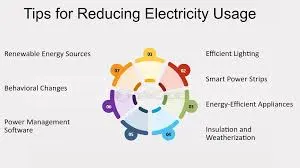Cities worldwide are turning to scheduled OFFs to reduce energy consumption, curb emissions, and promote sustainability amid rising climate concerns.
Cities Turn to Scheduled OFFs for Energy Conservation
As global energy demands surge and climate concerns mount, cities around the world are embracing a new method of energy conservation—scheduled OFFs. This strategy involves temporarily shutting off non-essential electrical systems at pre-planned times to reduce overall energy consumption.
What began as an emergency protocol during energy shortages has evolved into a structured sustainability initiative. These OFFs are now being used not just in households, but also in public infrastructure, schools, and corporate offices.

What Are Scheduled OFFs?
Scheduled OFFs refer to designated times when lights, electronics, or even HVAC systems are turned off, either manually or through automated systems. These OFFs can last anywhere from 15 minutes to a few hours, depending on the energy goals and specific environment.
In cities like Tokyo, Amsterdam, and Toronto, this strategy is proving to be both impactful and manageable. Timed switch-offs reduce electricity load, ease the pressure on grids, and even lower electricity bills.
Why OFFs Matter Now
The urgency behind OFFs is tied to two major global issues—climate change and energy security.
With increasingly frequent heatwaves and blackouts, cities are under pressure to both mitigate environmental damage and maintain power reliability. Scheduled OFFs offer a way to do both. By reducing non-essential consumption during peak hours, cities can prevent brownouts and reduce greenhouse gas emissions simultaneously.
According to a 2024 report from the International Energy Agency (IEA), adopting OFFs in urban areas could reduce electricity usage by up to 12% during peak times, significantly easing the burden on overstressed power grids.
Adoption in the Corporate Sector
Many multinational companies have started embracing OFFs as part of their sustainability mandates. Google, IKEA, and Microsoft have all implemented OFF schedules in office campuses, switching off non-critical systems during evenings and weekends.
These corporations also report increased employee awareness and engagement with sustainability issues, showing that OFFs do more than just cut bills—they can build culture.
Challenges and Concerns
Despite the benefits, there are challenges. For hospitals, data centers, or factories where uptime is critical, OFFs must be highly strategic.
“Scheduled OFFs work best when systems are in place to automate the process,” says energy consultant Priya Das. “Manual shutdowns can lead to errors or inconsistencies, so investment in smart systems is crucial.”
Public cooperation is also a hurdle. Without proper communication, OFFs can be viewed as inconvenient or even regressive. However, cities that accompany OFF initiatives with public awareness campaigns have seen higher acceptance rates.

Smart Cities Leading the Way
The rise of smart cities has made OFFs more efficient. IoT (Internet of Things) devices, smart meters, and AI systems allow for real-time monitoring and automated switch-offs without impacting essential services.
Barcelona’s recent “Green OFF Grid” initiative is one example. By integrating OFFs with AI-powered forecasting, the city saved an estimated 1.3 million kWh in just three months.
Looking Ahead
As sustainability takes center stage in urban planning, OFFs are likely to become a permanent part of energy policies. Whether implemented in homes or at city-wide scale, they represent a small but effective shift in how we think about power consumption.
With technological advancements and increasing climate pressure, scheduled OFFs may very well be a standard part of tomorrow’s energy-efficient world.





